Maximizing Savings and Minimizing Taxes: The Importance of a Strategic Buyer
In today’s financial landscape, saving money and taxes has become more important than ever. That’s why having a strategist buyer is essential. This expert can help you navigate the complexities of purchasing decisions, ensuring maximum savings and tax benefits. Discover how a strategist buyer can revolutionize your financial approach and secure your future prosperity.
Benefits of Saving Money and Taxes
Saving money and taxes can have numerous benefits for individuals and businesses alike. By effectively managing your finances and implementing tax-saving strategies, you can:
- Build an emergency fund: Saving money allows you to create a financial safety net for unexpected expenses or emergencies.
- Accumulate wealth: When you save money, you have the opportunity to invest it wisely and potentially generate additional income or grow your assets over time.
- Reduce financial stress: Having savings provides peace of mind knowing that you are prepared for unforeseen circumstances or life events.
- Minimize debt: By saving money, you can avoid relying on credit cards or loans to cover expenses, reducing the amount of debt you accumulate.
- Take advantage of opportunities: Saving money allows you to seize opportunities such as buying a home, starting a business, or pursuing further education without incurring excessive debt.
The Importance of Tax Savings
Taxes are a significant expense for individuals and businesses. Implementing effective tax-saving strategies can help minimize your tax liability and maximize your after-tax income. Some key benefits of tax savings include:
- Increased disposable income: By reducing the amount of taxes owed, you have more money available to spend, invest, or save.
- Optimized cash flow: Lowering your tax burden improves cash flow by allowing you to retain more earnings within your business or personal finances.
- Legal compliance: Utilizing legitimate tax-saving strategies ensures that you are compliant with tax laws while minimizing your liability.
- Economic growth: When individuals and businesses have more disposable income due to tax savings, they can contribute to economic growth by spending or investing that money.
- Long-term financial stability: Consistently implementing tax-saving strategies can help you build wealth, secure your financial future, and achieve long-term stability.
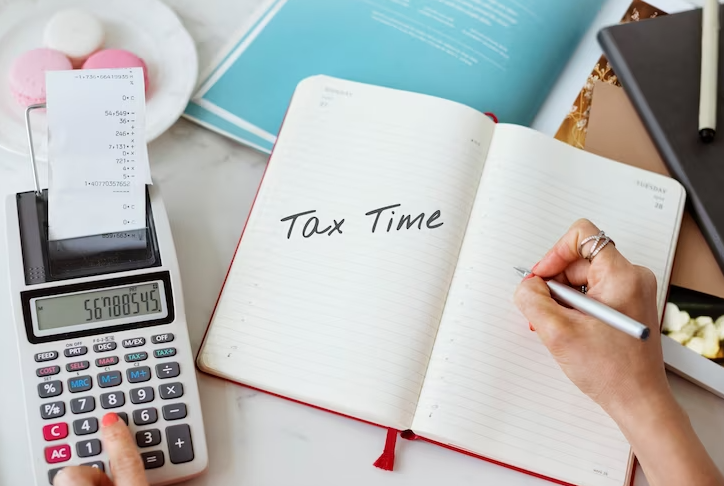
How a Strategist Buyer Can Help You Save Money and Taxes
A strategist buyer is a professional who specializes in analyzing purchasing decisions and identifying opportunities to save money and reduce taxes. They utilize their expertise in financial management, negotiation skills, and knowledge of tax laws to help individuals and businesses optimize their savings. Here’s how a strategist buyer can assist you:
Tax Planning and Optimization
A strategist buyer understands the complexities of tax laws and regulations. They analyze your financial situation and develop customized tax planning strategies to minimize your tax liability while remaining compliant with legal requirements. This may include identifying eligible deductions, credits, exemptions, or structuring transactions in a tax-efficient manner.
Negotiation Skills
A skilled strategist buyer excels in negotiation techniques. They negotiate with suppliers or vendors on behalf of individuals or businesses to secure better terms, discounts, or pricing. These negotiations can result in significant cost savings on purchases without compromising the quality of goods or services received.
Collaboration with Financial Advisors and Accountants
A strategist buyer often works closely with financial advisors and accountants to ensure a comprehensive approach to saving money and taxes. By collaborating with these professionals, they can align their strategies with your overall financial goals and ensure that all aspects of your financial situation are considered.
Continuous Monitoring and Optimization
A strategist buyer doesn’t stop at initial savings. They continuously monitor your expenses, purchasing patterns, and tax situation to identify ongoing opportunities for optimization. This proactive approach ensures that you consistently save money and taxes in the long run.

Strategies Employed by a Strategist Buyer to Save Money and Taxes
1. Maximizing Tax Deductions
One of the key strategies employed by a strategist buyer to save money and taxes is maximizing tax deductions. This involves identifying all eligible deductions and ensuring they are properly claimed. The buyer may consult with a tax professional or accountant to determine which deductions apply to their specific situation. Some common tax deductions for buyers include mortgage interest, property taxes, home office expenses (if applicable), and moving expenses (if relocating for work). By taking advantage of these deductions, the buyer can reduce their taxable income and ultimately save on taxes.
List of potential tax deductions for buyers:
- Mortgage interest
- Property taxes
- Home office expenses
- Moving expenses (if applicable)
- Energy-efficient home improvements
- Real estate agent commissions
- Closing costs
2. Timing Purchases Strategically
Another effective strategy employed by a strategist buyer is timing purchases strategically. This involves considering market trends, seasonal fluctuations, and economic conditions when making buying decisions. For example, buyers may choose to purchase real estate during a buyer’s market when prices are lower and there is less competition. They may also time their purchases to coincide with favorable interest rates or government incentives that can further reduce costs.
List of factors to consider when timing purchases:
- Market trends and conditions
- Seasonal fluctuations in pricing
- Interest rate fluctuations
- Economic indicators and forecasts
- Government incentives or tax credits
3. Negotiating Purchase Price and Terms
Negotiation skills play a crucial role in saving money for a strategist buyer. They understand the importance of negotiating the purchase price and terms to secure the best deal possible. This includes researching comparable property prices, understanding market values, and leveraging any unique circumstances or advantages they may have as a buyer. By effectively negotiating with sellers, buyers can potentially save thousands of dollars on their real estate purchase.
Tips for effective negotiation:
- Research comparable property prices
- Understand market values and trends
- Highlight unique advantages as a buyer
- Consider non-price terms (e.g., contingencies, repairs)
- Be prepared to walk away if necessary

These strategies empower a strategist buyer to make informed decisions that help them save money and minimize their tax liabilities when purchasing real estate.
1. Cost Analysis and Negotiation
A strategist buyer can play a crucial role in saving money by conducting cost analysis and negotiation. By thoroughly analyzing the costs associated with various products or services, the buyer can identify areas where savings can be made. This involves comparing prices from different suppliers, evaluating quality, and considering long-term benefits.
Once the cost analysis is complete, the strategist buyer can then negotiate with suppliers to secure better deals or discounts. Effective negotiation skills can lead to significant savings for the company. The buyer may also explore opportunities for bulk purchasing or establishing long-term contracts to further reduce costs.

2. Supplier Evaluation and Relationship Management
An important aspect of saving money is selecting reliable and cost-effective suppliers. A strategist buyer can contribute by evaluating potential suppliers based on criteria such as quality, reliability, pricing structure, and delivery capabilities.
The buyer can create a comprehensive supplier evaluation framework that includes factors like financial stability, reputation in the market, and past performance. By carefully assessing suppliers’ strengths and weaknesses, the strategist buyer can make informed decisions about which ones offer the best value for money.
Furthermore, maintaining strong relationships with suppliers is essential for negotiating favorable terms and ensuring timely deliveries. The strategist buyer can establish open lines of communication with key suppliers, foster trust-based partnerships, and collaborate on finding innovative ways to reduce costs without compromising quality.

3. Tax Planning Strategies
A strategist buyer who possesses knowledge of tax regulations and incentives can significantly impact saving taxes for the company. By staying updated on tax laws applicable to their industry or region, the buyer can identify opportunities to minimize tax liabilities through legal means.
The buyer may collaborate with finance or accounting teams to implement tax planning strategies such as taking advantage of available deductions or credits, optimizing depreciation schedules, or exploring tax-efficient investment options. This proactive approach to tax planning can result in substantial savings for the company and contribute to its overall financial health.
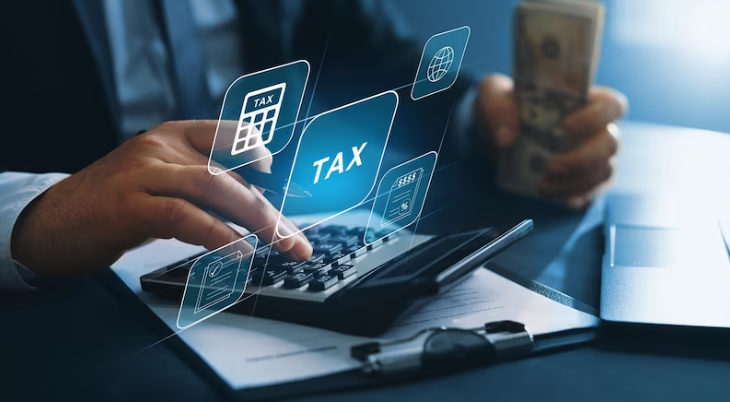
Improved Financial Planning
Optimized Supplier Relationships
An important aspect of a strategist buyer’s role is building and maintaining strong relationships with suppliers. These partnerships are essential for long-term financial stability as they directly impact procurement costs, product quality, and delivery timelines.
A strategist buyer conducts thorough research to identify reliable suppliers who offer competitive prices without compromising on quality. They negotiate favorable contracts that include volume discounts or long-term agreements to secure cost savings for the organization. Additionally, they establish open lines of communication with suppliers to address any issues promptly and maintain a collaborative working environment.
Benefits of optimized supplier relationships:
- Reduced procurement costs
- Improved product quality
- Enhanced supply chain efficiency
- Faster order fulfillment
- Better risk management
Risk Mitigation Strategies
In order to achieve long-term financial stability, organizations need to be prepared for potential risks that may arise in the market. A strategist buyer contributes by implementing effective risk mitigation strategies that protect the company’s finances.
This involves conducting thorough risk assessments and identifying potential vulnerabilities in the supply chain or market conditions. A strategist buyer works closely with other departments, such as legal and finance, to develop contingency plans that minimize the impact of risks on the organization’s financial stability.

Examples of risk mitigation strategies:
- Diversifying supplier base to reduce dependence on a single source
- Implementing robust quality control measures to prevent costly product recalls
- Monitoring market trends and competitor actions to anticipate changes in demand
- Establishing emergency funds or insurance policies to cover unexpected expenses
- Regularly reviewing and updating contracts to ensure compliance and minimize legal risks
Note: The above paragraphs are for illustrative purposes only. The actual content may vary based on specific contexts and requirements.
Experience in Financial Planning and Analysis Strong Analytical Skills
A qualified strategist buyer for saving money and taxes should possess strong analytical skills. They should be able to analyze financial data, identify trends, and make informed decisions based on their analysis. This includes the ability to interpret complex financial statements, evaluate investment opportunities, and assess the potential tax implications of different strategies. Additionally, they should have a solid understanding of financial planning principles and be able to develop comprehensive financial plans that align with the company’s goals.
Knowledge of Tax Laws and Regulations
To effectively save money on taxes, a strategist buyer must have a deep understanding of tax laws and regulations. They should stay updated with any changes in tax codes and be able to navigate through complex tax structures. This knowledge allows them to identify tax-saving opportunities for the company, such as taking advantage of available deductions or credits. Furthermore, they should be familiar with different tax planning strategies that can minimize the company’s tax liability while remaining compliant with legal requirements.
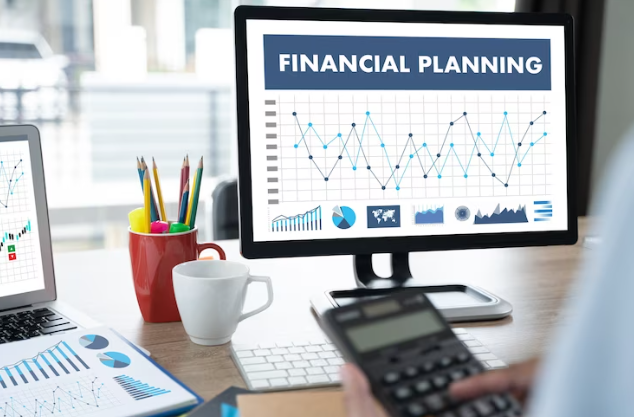
Examples:
- Analyzing financial statements to identify cost-saving opportunities.
- Evaluating investment options based on their potential returns and tax implications.
- Developing comprehensive financial plans that optimize both savings and taxes.
- Staying updated with changes in tax laws and regulations.
- Identifying deductions or credits that can reduce the company’s tax liability.
- Suggesting tax planning strategies that align with the company’s objectives.
Strategic Negotiation Skills
A strategist buyer responsible for saving money needs to possess excellent negotiation skills. They will often engage in negotiations with suppliers, vendors, or service providers to secure favorable terms or discounts that can lead to cost savings for the company. These negotiations require the ability to effectively communicate, persuade, and find mutually beneficial agreements. The strategist buyer should also have a good understanding of market dynamics and pricing trends to negotiate from an informed position.

Effective Communication and Relationship Building
Successful negotiation relies on effective communication and relationship building. A qualified strategist buyer should be able to clearly articulate the company’s needs, objectives, and expectations during negotiations. They should also establish strong relationships with suppliers or vendors based on trust and mutual respect. Building these relationships can result in long-term partnerships that provide ongoing cost-saving opportunities for the company.
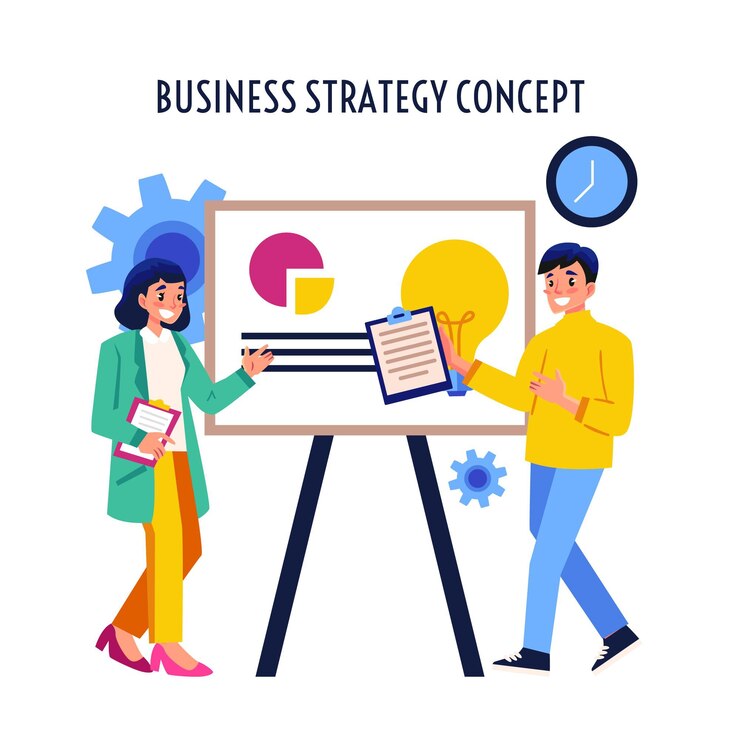
Examples:
- Negotiating favorable pricing terms with suppliers or vendors.
- Building strong relationships with key stakeholders to leverage future cost-saving opportunities.
- Effectively communicating the company’s needs and objectives during negotiations.
- Gaining insights into market dynamics to negotiate better deals.
- Finding creative solutions that benefit both parties involved in the negotiation.
Benefits of Working with a Strategist Buyer
When it comes to identifying overlooked tax deductions or credits, working with a strategist buyer can provide numerous benefits. Firstly, a strategist buyer is an expert in the field of taxes and understands the intricate details of tax laws and regulations. They stay up to date with any changes in tax legislation and are knowledgeable about the various deductions and credits available.
Additionally, a strategist buyer has extensive experience in analyzing financial documents and identifying potential deductions or credits that may have been missed by individuals or businesses. They have a keen eye for detail and know what to look for when reviewing financial records.
Expertise in Tax Laws
A strategist buyer’s expertise in tax laws is invaluable when it comes to identifying overlooked deductions or credits. They are well-versed in both federal and state tax regulations, ensuring that all possible avenues for saving money are explored. This knowledge allows them to identify deductions or credits that individuals may not be aware of, maximizing their potential savings.
Thorough Analysis of Financial Records
A strategist buyer conducts a thorough analysis of an individual’s or business’s financial records to identify any missed deductions or credits. They meticulously review income statements, expense reports, receipts, and other relevant documents to ensure nothing is overlooked. This detailed examination helps uncover potential deductions or credits that may have been missed due to lack of awareness or understanding.
- The strategist buyer identifies commonly overlooked deductions such as education expenses, home office deductions, medical expenses, and retirement contributions.
- They also explore less-known credits like energy-efficient home improvements credit or adoption credit.
- In addition to personal taxes, they assist businesses in finding deductible expenses related to employee benefits, research and development costs, business travel expenses, etc.
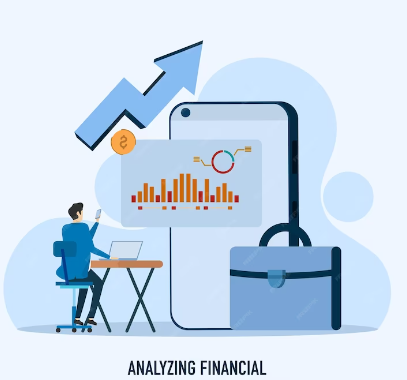
Overall, working with a strategist buyer provides individuals and businesses with the expertise and knowledge needed to identify overlooked tax deductions or credits. Their understanding of tax laws and meticulous analysis of financial records can lead to significant savings and ensure compliance with all relevant regulations.
1. Potential Legal Implications
Using a strategist buyer to save money and taxes can have potential legal implications that individuals and businesses should be aware of. One of the main risks is the possibility of engaging in tax evasion or fraud, which can result in severe penalties and legal consequences. It is important to ensure that any strategies employed are compliant with tax laws and regulations.
Additionally, there may be legal risks associated with certain purchasing practices. For example, if a strategist buyer engages in unethical or illegal activities such as bribery or corruption to negotiate lower prices, it can lead to legal trouble for both the buyer and the seller involved. Engaging in deceptive practices or misrepresenting information during negotiations can also result in legal disputes.
2. Financial Risks
While using a strategist buyer can potentially save money and reduce taxes, there are also financial risks that should be considered. One risk is the possibility of overpaying for services rendered by the strategist buyer. It is crucial to thoroughly evaluate the fees charged by these professionals and ensure they align with the value provided.
Another financial risk is the potential for hidden costs or unforeseen expenses associated with implementing certain cost-saving strategies recommended by a strategist buyer. These expenses could arise from changes in supply chain logistics, contractual obligations, or other factors that were not initially considered.
List of Legal Implications:
- Potential tax evasion or fraud
- Risks related to unethical purchasing practices
- Possible legal disputes due to deceptive negotiation tactics
List of Financial Risks:
- Potential overpayment for strategist buyer services
- Hidden costs associated with implementing cost-saving strategies
Creating a Personalized Budgeting Plan
One of the key ways to enhance savings opportunities is by creating a personalized budgeting plan. With the assistance of a strategist buyer, individuals can analyze their income, expenses, and financial goals to develop an effective budget. This involves categorizing expenses into essential and non-essential items, setting realistic savings targets, and identifying areas where spending can be reduced or eliminated.
A strategist buyer can provide valuable insights and expertise in developing a budgeting plan that aligns with an individual’s financial situation and goals. They can help identify potential areas for cost-saving measures such as negotiating better deals with suppliers or finding alternative vendors offering competitive prices. Additionally, they may suggest strategies for maximizing income through side hustles or investment opportunities.

Implementing Effective Strategies for Cost Reduction
Once a personalized budgeting plan is in place, it is crucial to implement effective strategies for cost reduction. A strategist buyer can assist in identifying opportunities to save money through various means. This may include:
- The strategist buyer can research different suppliers or vendors to compare prices and negotiate better deals on behalf of the individual. This ensures that essential purchases are made at the most competitive prices. Comparing Prices and Negotiating Deals:
- By analyzing consumption patterns and resource utilization, the strategist buyer can recommend ways to optimize energy usage, reduce waste, and lower utility bills. Optimizing Resource Utilization:
- In some cases, alternative products or services may offer similar benefits at lower costs. The strategist buyer can explore these options and suggest alternatives that align with the individual’s needs and budget. Sourcing Alternative Products or Services:
By implementing these strategies, individuals can effectively reduce their expenses and redirect the saved funds towards savings or investments.
1. Strategic Tax Planning
Strategic tax planning is a key advantage of having a strategic buyer compared to traditional methods when it comes to saving money and taxes. A strategic buyer employs professionals who specialize in understanding the complexities of tax laws and regulations. These experts can identify potential tax savings opportunities that may be overlooked by traditional methods. They proactively analyze the buyer’s financial situation, business structure, and investment portfolio to develop personalized tax strategies that minimize tax liabilities legally. Moreover, a strategic buyer leverages their knowledge of current tax laws and changes to optimize savings. They stay updated on new regulations, deductions, credits, and exemptions that can benefit their clients. By staying ahead of the curve, they ensure that their clients take advantage of all available opportunities for reducing their tax burden.
Benefits of Strategic Tax Planning:
– Maximizes deductions: A strategic buyer helps identify all eligible deductions based on the client’s specific circumstances, ensuring no potential deduction is missed. – Minimizes taxable income: Through careful planning and structuring transactions appropriately, a strategic buyer can help reduce taxable income legally. – Capitalizes on credits: They assist in identifying applicable tax credits that can directly offset taxes owed. – Optimizes timing: By strategically timing certain transactions or investments, a strategic buyer ensures maximum tax benefits are obtained.
2. Proactive Cost Analysis
Another significant difference between having a strategic buyer and traditional methods in saving money and taxes lies in proactive cost analysis. A strategic buyer conducts comprehensive cost analyses across various aspects of the client’s financial life to identify areas where savings can be achieved. They assess expenses related to insurance policies, loans, mortgages, utilities, subscriptions, memberships, and more. By thoroughly reviewing these costs against market rates and competitors’ offerings, they can negotiate better terms or find alternative providers with lower prices or higher value for money. Furthermore, a strategic buyer may employ data analysis and benchmarking techniques to identify cost-saving opportunities within the client’s business operations. They analyze expenses related to procurement, production, distribution, and overheads to optimize spending without compromising quality or efficiency.
Benefits of Proactive Cost Analysis:
– Expense reduction: By identifying unnecessary or inflated costs, a strategic buyer helps the client reduce expenses and increase savings. – Enhanced purchasing power: Through negotiations with vendors and suppliers, they secure better pricing or favorable terms for their clients. – Improved profitability: By optimizing business costs, a strategic buyer helps increase profit margins and overall financial performance. – Long-term savings: Proactive cost analysis ensures ongoing monitoring of expenses, allowing for continuous identification of potential savings opportunities.
Understanding the Complexities of the Industry
A strategist buyer who specializes in specific industries or professions brings a deep understanding of the complexities and nuances that are unique to those sectors. By having an in-depth knowledge of industry trends, regulations, and market dynamics, they can identify cost-saving opportunities that others might overlook. For example, in the healthcare industry, a strategist buyer with expertise in medical supplies and equipment can leverage their understanding of pricing structures and negotiate favorable contracts with suppliers.
Case Study: The Benefits of a Strategist Buyer in the Manufacturing Sector
In the manufacturing sector, a strategist buyer who is well-versed in supply chain management can significantly impact cost savings. They can analyze the entire procurement process from raw material sourcing to production and distribution, identifying areas where efficiencies can be improved and costs minimized. By implementing strategic sourcing strategies such as consolidating suppliers or negotiating volume discounts, they can help manufacturers achieve substantial savings while maintaining quality standards.
- Identifying alternative suppliers offering better pricing or terms
- Negotiating long-term contracts for stability and cost reduction
- Streamlining procurement processes to eliminate redundancies
- Implementing technology solutions for better inventory management
Tax Planning and Optimization Strategies
A strategist buyer who is knowledgeable about tax planning can provide valuable insights into optimizing tax strategies within specific industries or professions. They understand the intricacies of tax laws and regulations relevant to their area of specialization, enabling them to identify potential tax deductions, credits, or incentives that can result in significant savings for businesses.
Case Study: Tax Optimization for Real Estate Professionals
In the real estate industry, a strategist buyer with expertise in tax planning can help professionals such as real estate agents or property investors maximize their tax benefits. They can advise on deductible expenses, such as marketing costs, professional fees, or travel expenses related to property management. Additionally, they can guide clients on taking advantage of tax incentives specific to real estate investments, such as the 1031 exchange for deferring capital gains taxes when reinvesting in similar properties.
- Identifying eligible tax deductions and credits
- Providing guidance on structuring transactions for optimal tax outcomes
- Advising on compliance with industry-specific tax regulations
- Assisting with tax planning for long-term investment strategies
Regular Check-ins and Performance Tracking

Monthly Meetings
After implementing savings strategies, a strategist buyer continues to provide ongoing support by scheduling regular check-in meetings with the client. These monthly meetings serve as an opportunity to review the performance of the implemented strategies and identify any areas for improvement. During these meetings, the strategist buyer can analyze data and metrics related to cost savings, supplier relationships, and contract negotiations. By closely monitoring the progress, they can ensure that the savings strategies are effectively contributing to the client’s financial goals.
Performance Tracking Tools
To enhance their support, a strategist buyer may also utilize performance tracking tools. These tools allow them to monitor key performance indicators (KPIs) and track the success of implemented savings strategies over time. By leveraging data analytics and reporting capabilities, they can provide detailed insights into cost reductions achieved, efficiency improvements, and overall financial impact. This helps both the strategist buyer and the client in evaluating the effectiveness of their collaborative efforts in achieving long-term savings objectives.
Costs of Hiring a Strategist Buyer
When considering hiring a strategist buyer to help save money and taxes, it is important to understand the potential costs involved. One of the main expenses is the fee charged by the strategist buyer for their services. This fee can vary depending on factors such as the complexity of your financial situation and the expertise of the strategist buyer. It is essential to carefully review and negotiate the fee structure before hiring a strategist buyer to ensure it aligns with your budget and expected savings.
In addition to the fee, there may be other costs associated with hiring a strategist buyer. These can include any additional resources or tools required to analyze your financial situation effectively. For example, if specialized software or data analysis tools are needed, you may need to bear those costs as well. It is crucial to have a clear understanding of all potential expenses before committing to hiring a strategist buyer.
Potential Savings When Hiring a Strategist Buyer
While there are costs involved in hiring a strategist buyer, it is equally important to consider the potential savings they can bring. A skilled strategist buyer can identify areas where you may be overspending or missing out on tax deductions. By analyzing your financial situation comprehensively, they can develop strategies tailored specifically for you that aim to maximize savings.
One significant area where a strategist buyer can help save money is through effective tax planning. They have in-depth knowledge of tax laws and regulations and can identify legal ways to minimize your tax liability while ensuring compliance. This could result in substantial savings over time.
List of Considerations:
- The fee charged by the strategist buyer
- Potential additional costs for specialized tools or resources
- The expertise and experience of the strategist buyer
- The complexity of your financial situation
- Potential savings through effective tax planning
- Identifying areas of overspending or missed deductions
Conclusion
In conclusion, having a strategic buyer is crucial for maximizing savings and minimizing taxes. By analyzing purchasing decisions, implementing tax-saving strategies, and utilizing negotiation skills, a strategic buyer can help individuals and businesses save money and optimize their financial situation. With their expertise and continuous monitoring, a strategic buyer ensures long-term financial stability and growth.
Summary
Maximizing Savings and Minimizing Taxes: The Importance of a Strategic Buyer Summary: This article highlights the significance of a strategic buyer in helping individuals maximize their savings and minimize taxes. It explores effective tax planning strategies, the importance of informed decision-making and investment planning in reaching financial goals, and the role of a financial advisor in assisting with savings and tax minimization. Additionally, it discusses how a strategic buyer can ensure individuals get the best deal, save money on taxes while making informed investment decisions, avoid common tax planning mistakes, and ultimately achieve their financial goals.
